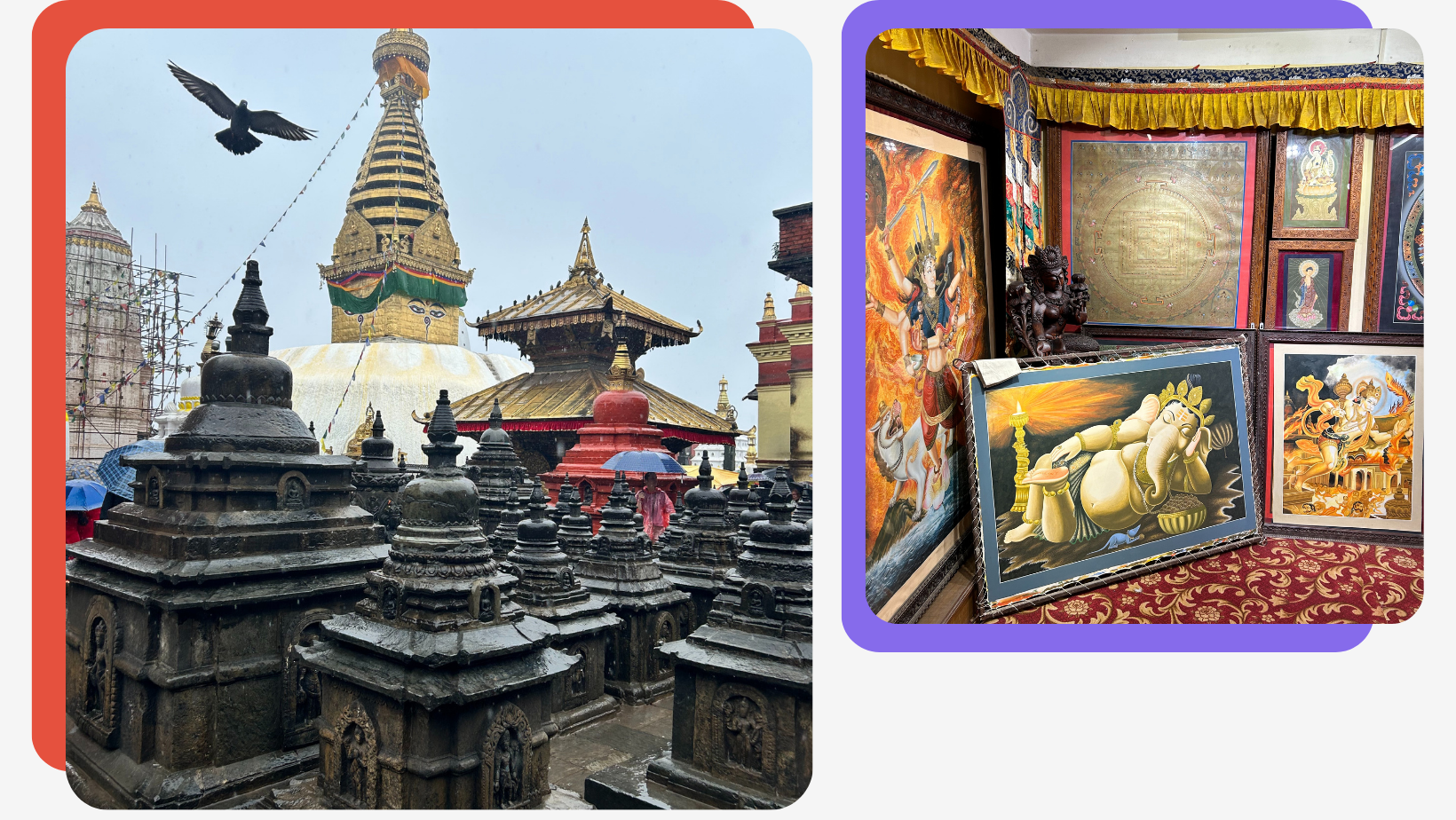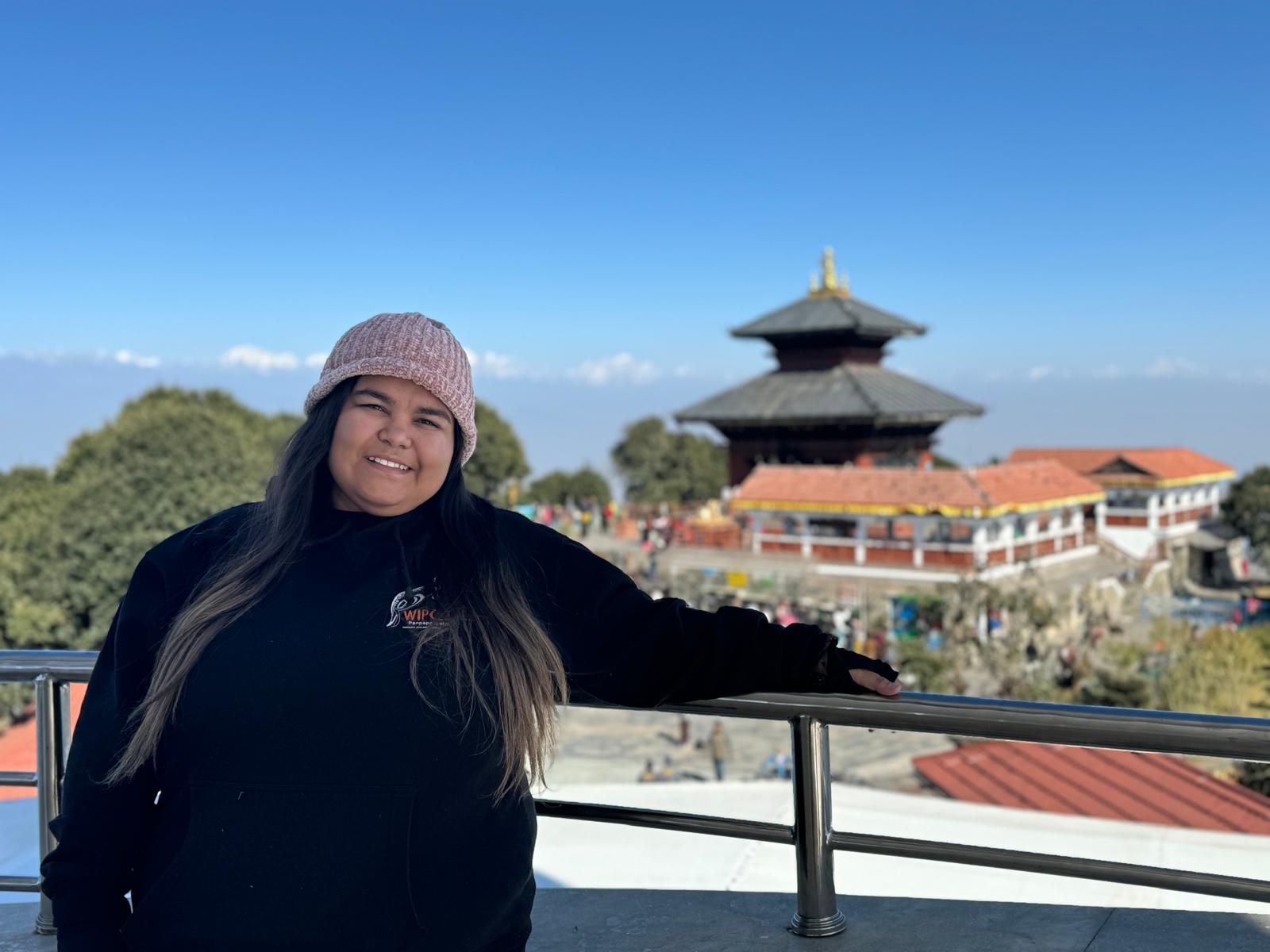During January 2025, I spent three weeks in Nepal, on the Challenges Abroad and Future Sense collaboration as a student from Curtin University studying with the Faculty of Business and Law. This experience was centred on teaching Nepalese Women about Financial Literacy over a series of student designed and facilitated workshops that were heavily aligned to the sustainable development goals of Gender Equality and Decent Work and Economic Growth. It was truly once-in-a-lifetime experience that I am grateful taught me much more about Asia and how important sustainability is and how it impacts countries and societies across the globe.
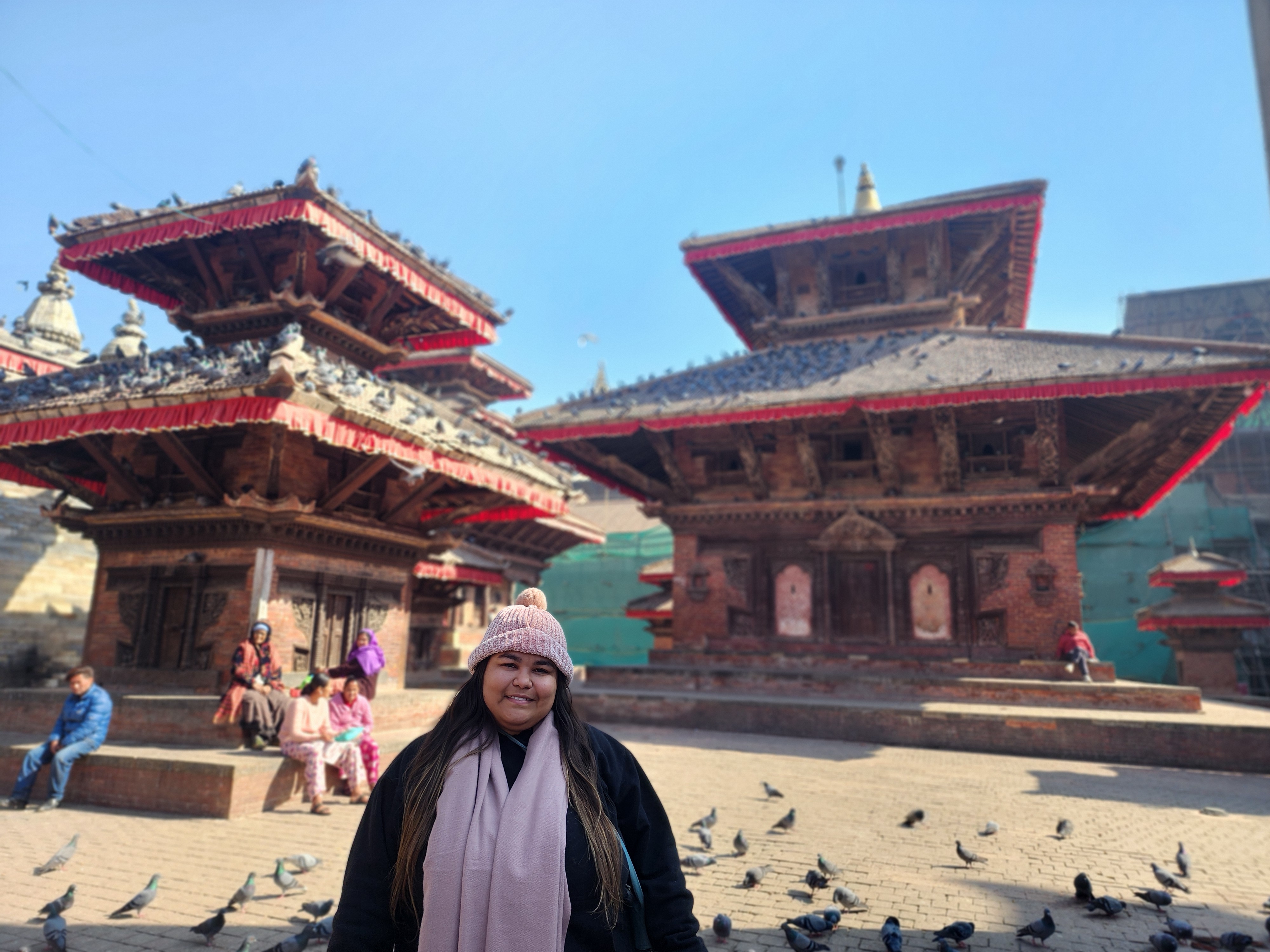
My top three highlights and why!
Thousands of kilometres were gained in Nepal, hundreds of memories were made, nine of my peers to assist in educating 20 women and countless beautiful people I met along the way. However, there were three core highlights that stand out which I gained from this experience in Nepal.
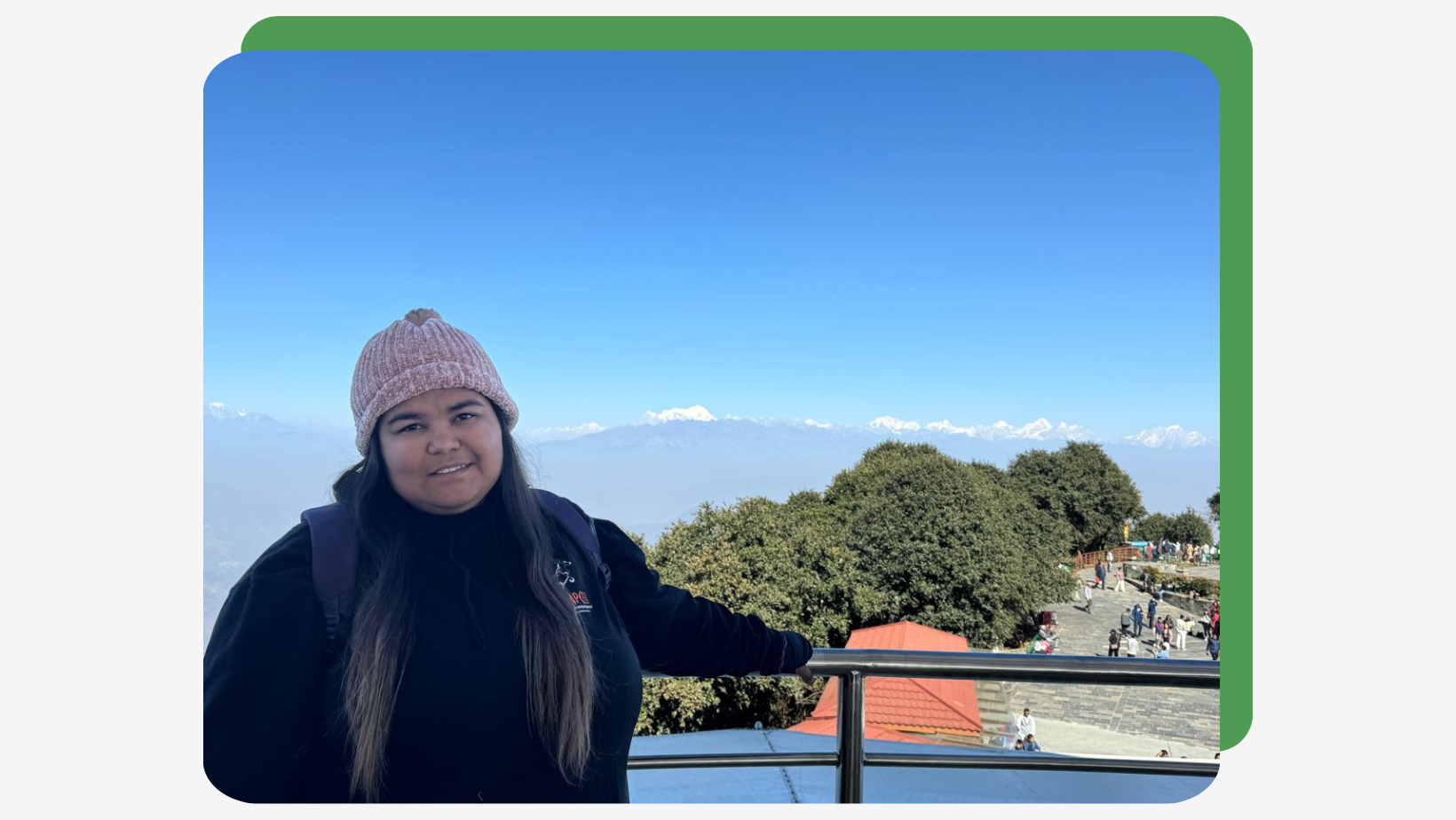
-
Visting Chandragiri Hills
Whilst there were many parts of my trip that were memorable, visiting Chandragiri Hills was at the top of my list. Quite literally the top, I had the experience of standing at what to me would be top of the world. Chandragiri Hills is 2551 meters above sea level, accessible by cable cars and is the epitome of a beautiful scenery, the perfect viewing point to be able to see the peaks of Mount Everest. While visiting this place, I gained such a different perspective about beauty and relaxation, I was immensely captivated by the atmosphere of people, music, activities, nature and adventure that it became my favourite part of my experience.
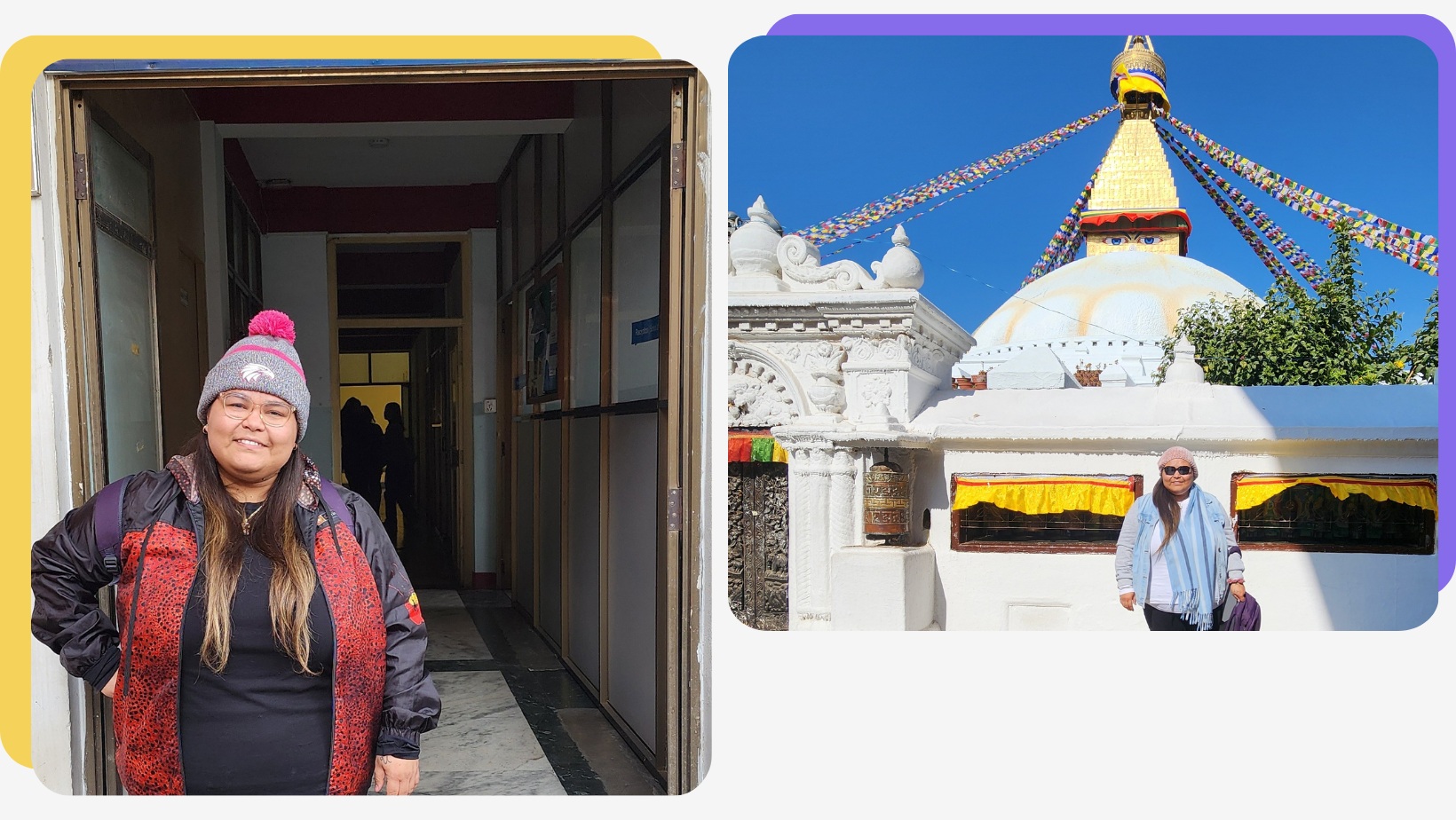
2. Being Immersed in Nepalese Culture
Meeting Nepalese women and becoming immersed in culture was a significant highlight that gave me an appreciation for being a part of a program that makes a difference. As a student studying International Business and Anthropology and Sociology, the ability to learn from and further understand how a society different to my own interacts with history, culture and the world was amazing to see. I love culture and seeing how people conduct their traditional customs and seeing how much love people have for their culture to do song or dance, was such a phenomenon to me that it strengthens my appreciation of my own culture more. The differences in culture allowed me to participate in a cultural exchange, to share things from my culture and see similarities in how cultures sustain different cultural customs, this was exciting.
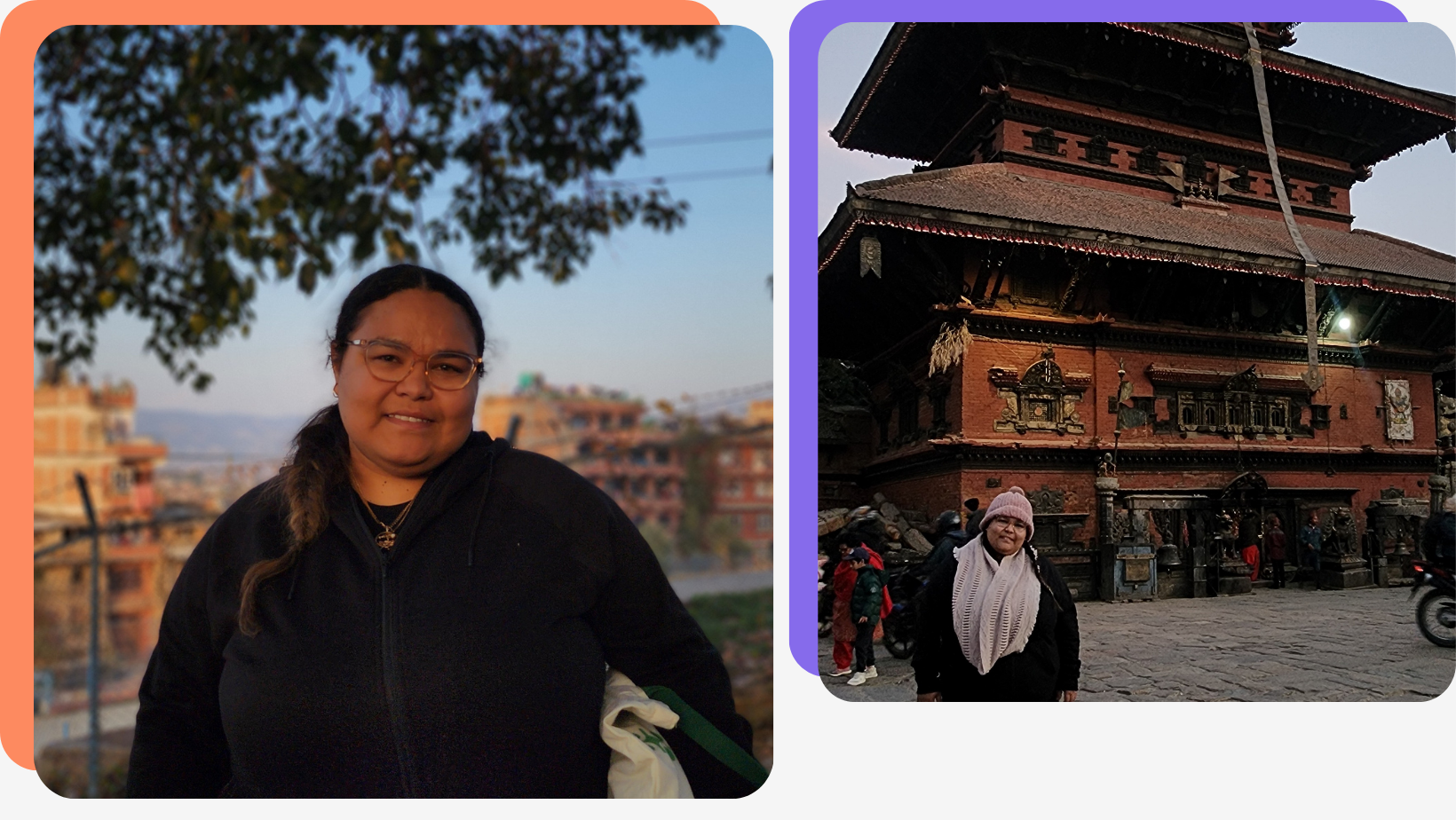
3. Staying in Bhaktapur
Bhaktapur is one of three main cities in Kathmandu Valley and is known for its rich history and preservation of culture. It is home to The Durbar Square, and is an UNESCO world heritage site, during my time in Nepal, I stayed in Bhaktapur and became to love this unique part of Nepal, visiting the nearby Temples. The Nepalese people in the area highly value this location as their smallest populated city and I was eager to share stories about the creation of some of their oldest buildings, notably how many sites withstood several earthquakes. To me, this was a highlight, as I felt that I got a glimpse into seeing real culture and learned more about Nepalese culture by exploring this place.
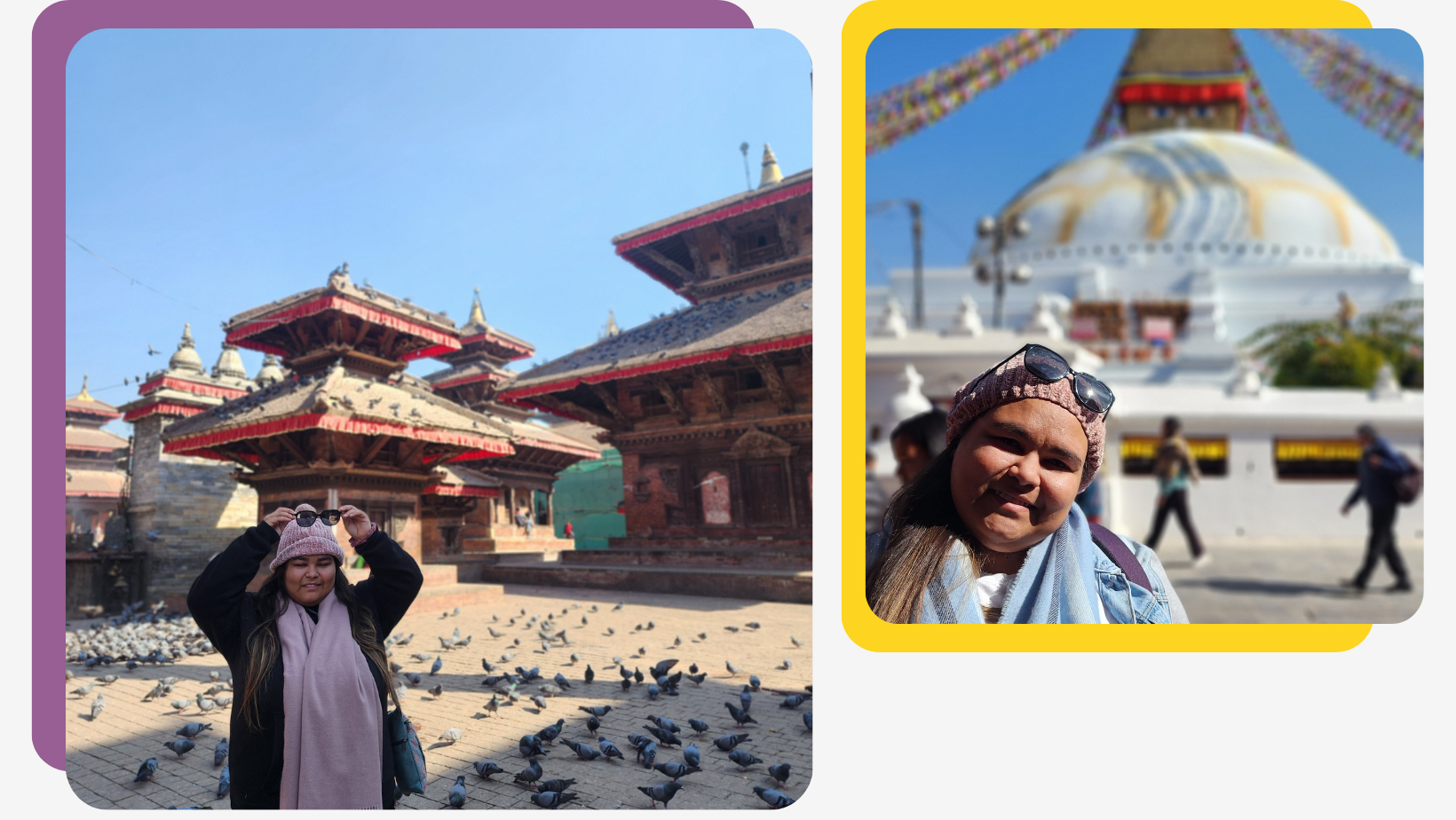
What does Global Citizenship mean to me?
Before attending this experience, I considered myself a global citizen, not because I travelled to fourteen countries, but because of my passion and love for global cultures. To me, being a global citizen means more than going around the world, it means consistently adapting to changes and learning from experiences around the world. Having participated in several international experiences and programs like this, I feel my understanding of what it means to be a global citizen has expanded. A global citizen takes every opportunity to learn more about the world and understands how their decisions affect or influence others. They are committed to creating change and contributing to social impact, addressing real-world problems to promote sustainability, peace, and prosperity for future generations.
In addition, incorporating Indigenous perspectives and knowledge is vital as they offer invaluable insights into resources and sustainability. First Nations Australians like myself, come from a culture that is the world's oldest sustainable culture, and have mastered the art of living of the land, to me we are the first global citizens who thought of earth as our mother of all knowledge. The First Nations practices and traditions emphasize the responsible use of natural resources, conservation efforts, and the importance of maintaining ecological balance, to me this further defines what it means to be a global citizen. By drawing on Indigenous wisdom, global citizens can better understand the strategies that ensure long-term sustainability and respect for the environment to our collective efforts towards achieving a sustainable future.
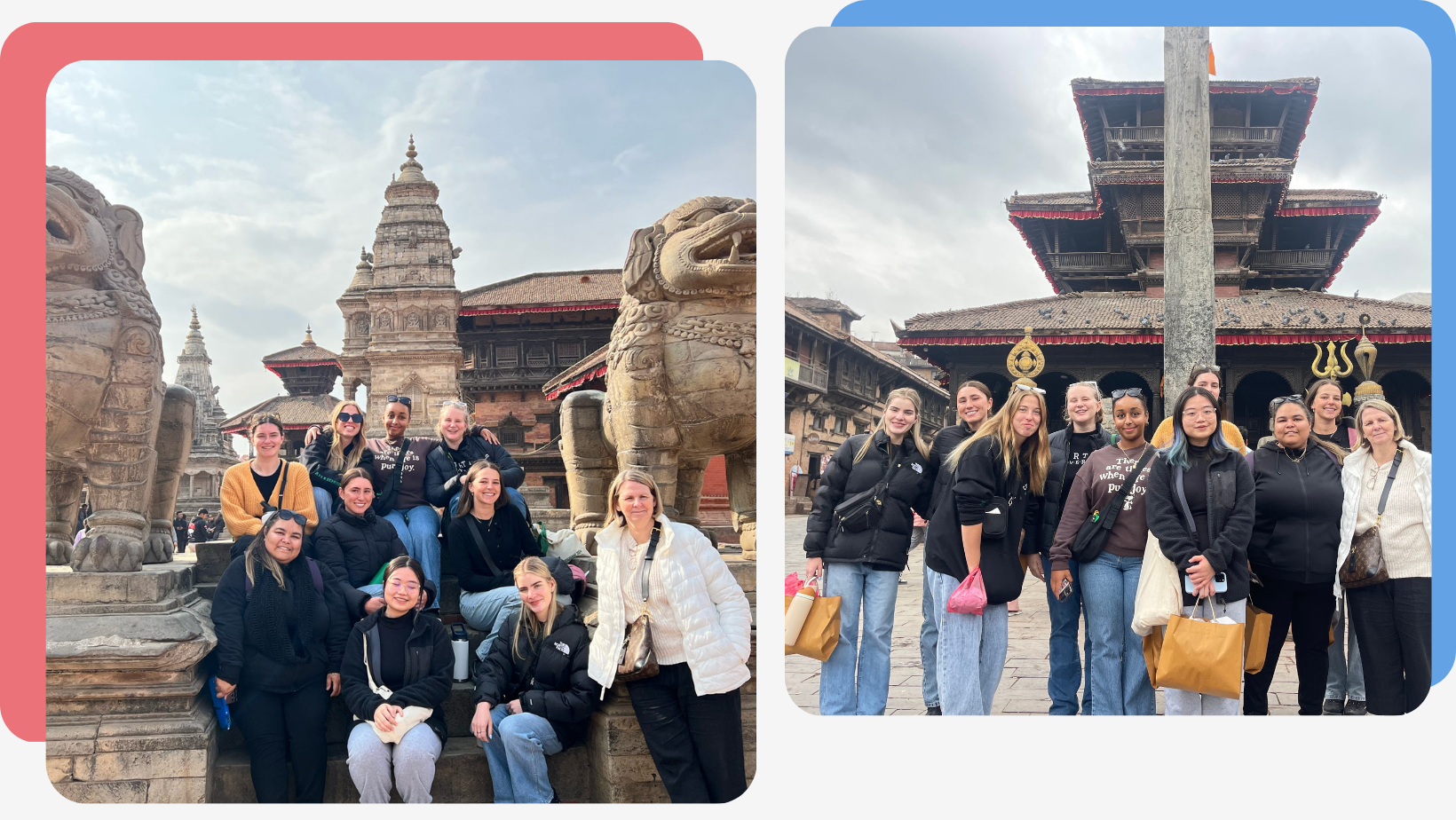
Advice for first time travellers overseas?
Over the past eight years, I have solo travelled to eleven countries and visited three as part of my university study tours. These experiences have shaped my understanding of global cultures. For first-time travelers, I recommend starting with nearby countries to build confidence before venturing further. This helps with adjusting to nerves, time differences, culture shock, and homesickness. If I could advise my past self, I would suggest exploring Asia first, as closer proximity to Australia can better prepare you for overseas travel and different cultural impacts. Preparation is crucial; be mindful that practices in your culture may differ elsewhere. This approach can aid in managing culture shock, which was essential for me in appreciating Nepal's culture.
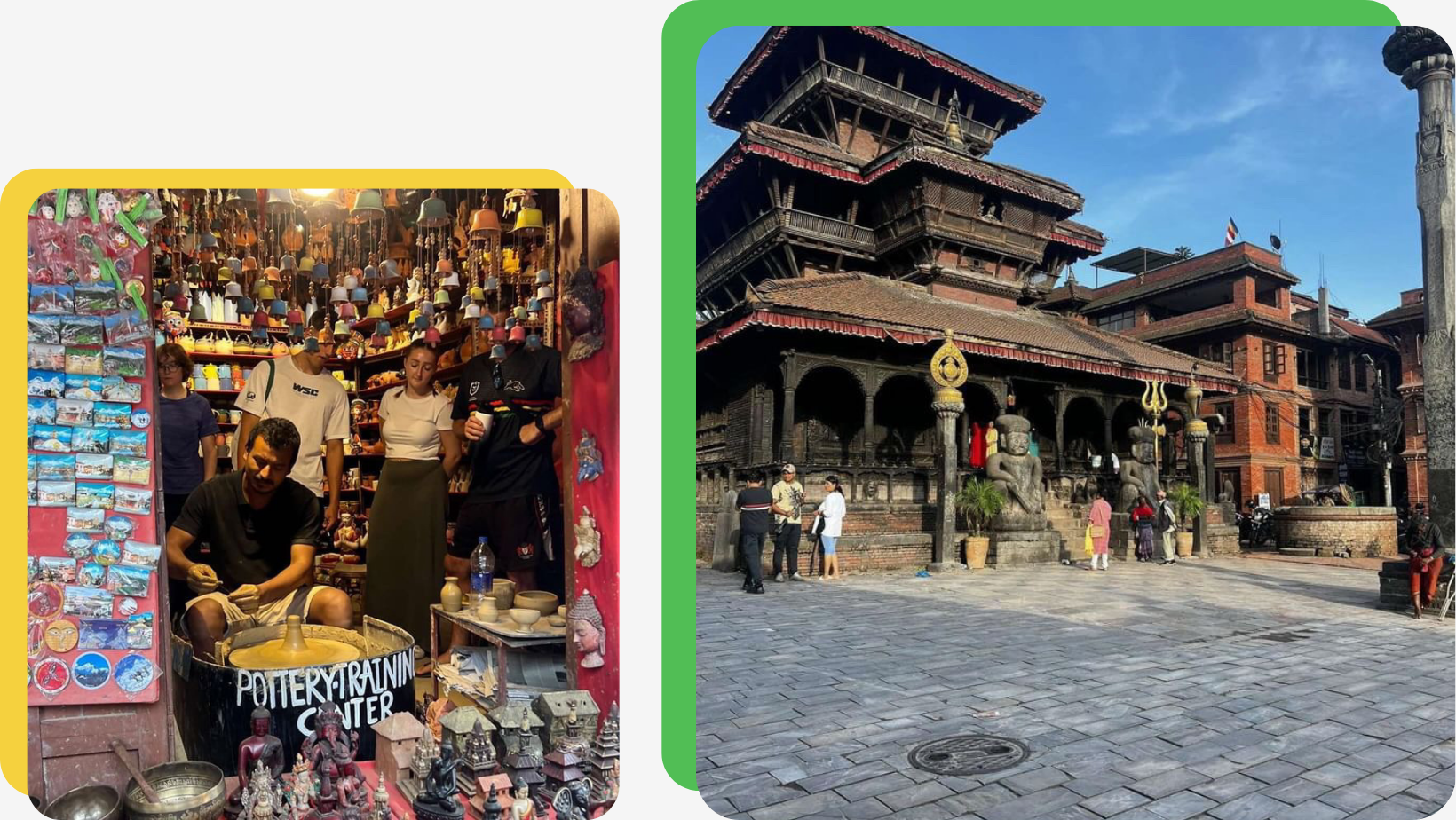
Advice about culture shock
Culture shock can manifest in many ways, including feeling overwhelmed by new customs, struggling with the local language, or adapting to unfamiliar food and social norms, as it makes you step outside your comfort zone. This involves feeling frustrated and overwhelmed, and after an adjustment period you can become more accustomed or in my case becoming “climatized” to cold Nepalese winter weather. For first time travelers, I recommend gaining a researched pre-understanding of the local customs and ways of life beforehand and to be kind to yourself, try new foods and new things to embrace new experiences.
